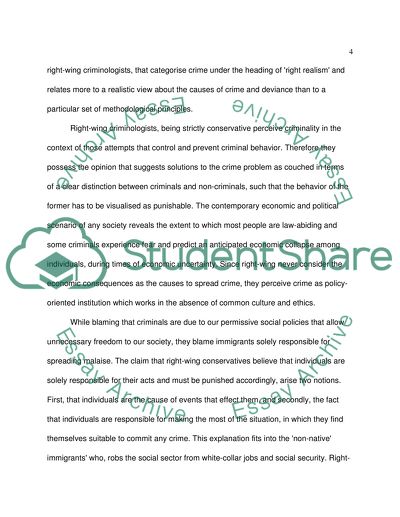Cite this document
(“Crime in the Perception of Right-wing Essay Example | Topics and Well Written Essays - 2000 words”, n.d.)
Retrieved from https://studentshare.org/miscellaneous/1519578-crime-in-the-perception-of-right-wing
Retrieved from https://studentshare.org/miscellaneous/1519578-crime-in-the-perception-of-right-wing
(Crime in the Perception of Right-Wing Essay Example | Topics and Well Written Essays - 2000 Words)
https://studentshare.org/miscellaneous/1519578-crime-in-the-perception-of-right-wing.
https://studentshare.org/miscellaneous/1519578-crime-in-the-perception-of-right-wing.
“Crime in the Perception of Right-Wing Essay Example | Topics and Well Written Essays - 2000 Words”, n.d. https://studentshare.org/miscellaneous/1519578-crime-in-the-perception-of-right-wing.


